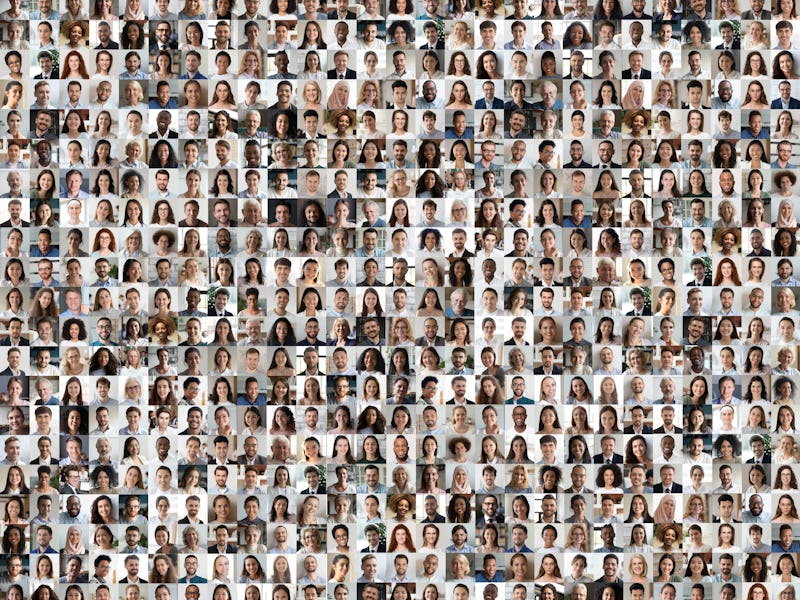What’s it cost to “preserve the light of consciousness”?
Plus: A classic American trait is leading to Covid-19 spread.

At the start of last month, I made the very correct and true statement that October is the best month. The glories of November are more muted but no less affecting.
In the part of the world where Inverse Daily is produced, November brings damper days and nights that creep up on you. So here’s wishing you warmth, productivity, and a sturdy umbrella over the next 30 days.
Let’s get into this edition of Inverse Daily. I’m Nick Lucchesi, an editor here. A note about Friday's newsletter: If you believe climate change is a hoax created to increase taxes, please don’t reply asking me to unsubscribe you. You can do that at the bottom of this email.
About that “preserve the light of consciousness” subject line: I’ll give you one guess who said it. Keep reading to find out.
A technical note — We know our consecutive open counter is broken, and we’re trying to fix it. 🚧🚧🚧
This is an adapted version of the Inverse Daily newsletter for Monday, November 1, 2021. Subscribe for free and earn rewards for reading every day in your inbox. ✉️
A quintessential American trait is responsible for spreading Covid-19 — Nick Keppler reports that scientists have discovered links between individualism, feelings of personal invincibility from Covid-19, and public health attitudes that can help spread the disease. Here’s a preview of the story:
Do you worry about getting Covid-19? Some people are worried about their health, and others are more worried about others’ health. But some believe Covid-19 won’t do them harm and who don’t care about the rest, either — and according to a new study, Americans may be particularly susceptible to this idea for one specific reason.
Go deeper into Covid culture:
The world's largest radio telescope may find alien robots —Passant Rabie reports that China's FAST radio telescope may be able to hunt for von Neumann probes, theoretical AI-driven alien inventions spreading through the cosmos. Here’s a teaser:
Zaza Osmanov, a physics professor at the Free University of Tbilisi, Georgia, wants to find mischievous, self-replicating probes built by a hyper-advanced alien civilization.
“The self-replication itself will inevitably lead to the exponential growth of the swarm of probes, making the process of space exploration very efficient,” Osmanov tells Inverse.
But these probes may not be so easy to find as they may be as small as a millimeter floating in the depths of space. Osmanov suggests turning to the world’s largest radio telescope, which has its gigantic eyes set on the cosmos in search of alien life to catch them in action.
Go deeper into the search for aliens:
Pyrenean Ibex,Capra pyrenaica pyrenaica, Hautes Pyrenees, Midi Pyrenees, France
Five times scientists revived the living dead — Tara Yarlagadda writes that scientists have revived ancient viruses and long-lost plants. Now they plan on bringing long-extinct animals, like the mammoth, back too. Here’s a sample:
From ancient viruses to cloned beings, scientists are reviving entities once considered lost. And while these scientific endeavors aren’t as controversial as Frankenstein’s monster, they’ve still raised a few eyebrows.
Here are five times over the past ten years when scientists brought back the living dead — and one animal that may reemerge in the future.
Go deeper into animal science:
Why Elon Musk doesn’t want a billionaire tax — Mike Brown writes that Elon Musk may have to pay more taxes as part of a proposed United States budget and Musk’s response. Here’s a preview of the full article:
Musk, right now the world’s richest person with a net worth of $292 billion, would be hit by the new tax. A Twitter post suggests he’s not happy.
“Eventually, they run out of other people’s money and then they come for you,” Musk wrote. The post bears some resemblance to former British prime minister Margaret Thatcher’s famous quote about the problem with socialism.
Go deeper:
NASA astronaut Jan Davis, mission specialist, in the science module of the Space Shuttle Endeavour in September 1992. Davis marks a birthday today.
- About the newsletter: Do you think it can be improved? Have a story idea? Want to share a story about the time you met an astronaut? Send those thoughts and more to newsletter@inverse.com.
- Birthdays: Apple CEO Tim Cook turns 61, Red Hot Chili Peppers singer Anthony Kiedis turns 59, science fiction author Susana Clarke turns 62, and Jan Davis, a former NASA astronaut (pictured above), turns 68.
- Song of the Day: “Mr. November” by The National.